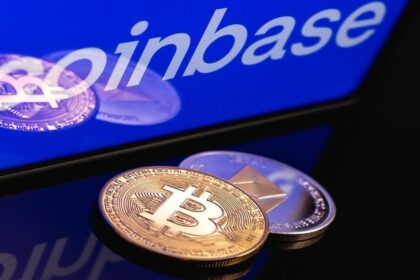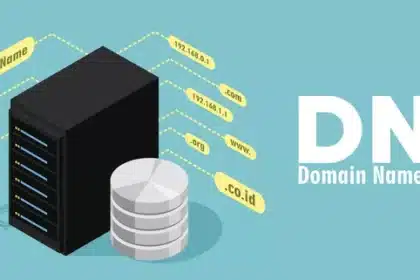The Maldives has announced the development of a $9 billion international crypto and blockchain hub in its capital, Malé. Titled the Maldives International Financial Centre, the project is a strategic partnership between the Maldivian government and Dubai-based MBS Global Investments, aiming to transform the island nation’s economy by tapping into the rapidly expanding digital asset sector.
This bold endeavor could potentially triple the nation’s GDP within four years, drastically reducing its reliance on tourism and fisheries, two industries vulnerable to global shocks like pandemics and climate change.
Project Highlights and Strategic Intent
Location: Malé, Maldives
Total Investment: $9 billion
Developer: MBS Global Investments (Dubai)
Project Size: 830,000 square meters
Expected Jobs: 16,000+
Timeline: Completion targeted within 5 years
According to Finance Minister Moosa Zameer, the crypto hub is expected to generate over $1 billion in annual revenue by its fifth year, acting as a major engine for economic diversification and digital innovation.
“This is a pivotal moment for our country,” Zameer stated. “The hub will position the Maldives as a serious player in fintech and Web3.”

Economic Pressures Drive Transformation
The Maldives is under mounting debt pressure, with repayments of $600–700 million due in 2025, and nearly $1 billion in 2026. This financial urgency has propelled the government to explore innovative, revenue-generating sectors.
By investing in blockchain infrastructure, the Maldives seeks to future-proof its economy, drawing in foreign capital, crypto startups, Web3 developers, and decentralized finance (DeFi) platforms—all while reducing its debt burden and creating thousands of tech-based jobs.
Can Maldives Rival Crypto Powerhouses?
The Maldives is not alone in its ambition to become a global blockchain hub. It faces stiff competition from:
Dubai: Already home to major crypto exchanges and a favorable regulatory landscape.
Singapore: A tech-forward nation with mature crypto infrastructure and robust investment inflows.
Hong Kong: Bridging East and West with evolving pro-crypto regulations and investor access to China.
However, with a strong tourism brand and a clean slate for tech policy, the Maldives could offer unique advantages: tax incentives, crypto-friendly policies, and pristine appeal to nomadic crypto entrepreneurs.
Analyst Outlook: Too Ambitious or Perfect Timing?
Market observers are cautiously optimistic. While $9 billion is a massive investment—larger than the Maldives’ entire $7 billion GDP—analysts believe the timing is right, given the surging institutional interest in crypto and Web3.

“It’s ambitious, no doubt. But the opportunity to leapfrog into the future of finance is real if executed properly,” said Sara Liu, Head of Asia Crypto Research at ChainFront.
The hub is expected to house exchanges, tokenization labs, AI-integrated finance tools, and decentralized identity services—all part of the new frontier of Web3 finance.
Price Table: GDP vs. Investment Impact
| Metric | Value |
|---|---|
| Maldives 2024 GDP (est.) | $7 Billion USD |
| Crypto Hub Investment | $9 Billion USD |
| Annual Projected Revenue (Year 5) | $1 Billion+ USD |
| Estimated Job Creation | 16,000+ |
| Foreign Direct Investment Target | High-tier Fintech Firms |
Conclusion: Crypto Coral or Financial Mirage?
The Maldives’ $9 billion crypto gamble could either redefine its global economic identity or fall short under execution challenges. But one thing is clear: the island nation is not content with being just a honeymoon destination. It wants to be the next crypto capital of the Indian Ocean, and potentially, the world.
Whether the tides of global finance will favor this coral-fringed ambition remains to be seen, but the Maldives just put its digital flag in the Web3 map.
FAQs
What is the Maldives International Financial Centre?
It’s a $9B project to create a blockchain-focused financial hub in Malé to diversify the Maldivian economy.
Who is funding the project?
The Dubai-based MBS Global Investments is partnering with the Maldivian government to fund and develop the hub.
How will this benefit the Maldivian economy?
It could triple GDP in four years, create over 16,000 jobs, and generate $1B in yearly revenue by year five.
Can the Maldives really compete with Dubai or Singapore?
While it’s a bold move, the Maldives offers a clean regulatory slate, investment appeal, and geographic advantage for Web3 tourism.
Glossary
Web3: The decentralized internet built on blockchain technologies.
DeFi (Decentralized Finance): Financial applications without central intermediaries.
Fintech: Financial technology solutions disrupting traditional finance.
GDP (Gross Domestic Product): Total economic output of a country.
Blockchain Hub: A region optimized for blockchain businesses and investments.





























